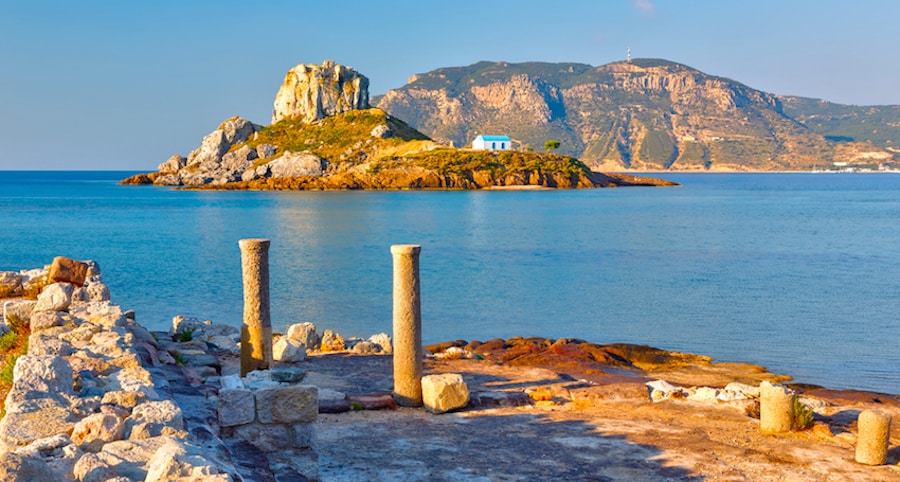Known around the world as the home of Hippocrates, Kos is the third-largest island in the Dodecanese group after Rhodes and Karpathos. It lies between Nisyros and Kalymnos, near the Asia Minor coast.
Kos is an ideal holiday destination. It is long and narrow, with mostly flat terrain except for two low mountains, Dikaio and Sympetro, along the south. It has an area of 290 square kilometres and is 219 nautical miles from Piraeus. The island’s population is just over 20,000 and most work in tourism, agriculture, stockbreeding, and fishing. The island is close to the Turkish coast and was rebuilt after the disastrous 1933 earthquake.
A temperate climate and verdant slopes offer good conditions for growing grapes. The island doesn’t have a POP designation but can produce all local Dodecanese and Aegean wines. Grape varietals grown on the island are found throughout the southern Aegean: Assyrtiko, Aidani, Athiri, Moschato, and Monemvasia.
Kos offers visitors a range of activities and sights, good infrastructure, a green environment, and beautiful beaches, many of which can be reached by bicycle, the most popular form of transport on the island.
Since ancient times, Kos has been renowned for its abundant natural resources and has often been referred to as a “floating garden” due to its fertile land, rich in both quantity and quality. Historically, ships laden with agricultural products—primarily grapes, watermelons, melons, and amphorae filled with its famous wines—sailed across the Mediterranean from the island. During that era, Kos supported a population more than six times greater than it does today.
The emblematic products of Kos include small tomatoes, posia cheese, honey, olive oil, and wines. Notable dishes in Kos cuisine feature Pitaridia (lasagna boiled in meat broth), katimeria, stuffed zucchini, pork cooked with bulgur, dolmadakia , and varvara.




